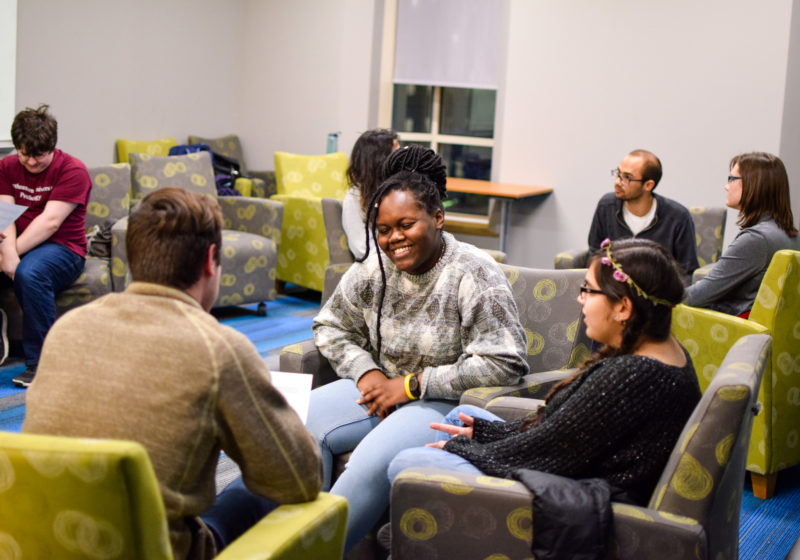The Paul J. Burgett Intercultural Center (BIC) held its first SafeZone Training Monday, kicking off monthly training sessions designed to spark dialogue and increase understanding of the issues facing the LGBT community.
The training, according to BIC program assistant and senior Michael Hellman, has been in the works for three years and has been worked on by a team consisting of Hellman, senior Nico Tavella, and BIC graduate assistant Jay Skye. The BIC’s preparatory work included attending training sessions held by the Gay Alliance of the Genesee Valley and similar SafeZone trainings at the Rochester Institute of Technology.
SafeZone is a national “LGBTQ awareness and ally training” program.
As part of the training, Hellman and Tavella discussed terms relating to LGBT issues, such as “cissexism” and “two-spirit.” Participants had the opportunity to ask Hellman and Tavella questions pertaining to the terms.
“I feel that I gained more of an insight in general into a community that I am barely connected to,” freshman Jacqueline Sanchez said. “It helped me understand more of the world around [me], and not just the parts of it that affect me. I also just want to be a better listener and the training helped me prepare to be a better one.”
The training also presented participants with a variety of statements and scenarios. For each situation, attendees shared their thoughts on how they would respond.
For example, in response to a scenario in which a student drops a course because their professor is refusing to use their preferred name, students discussed which faculty to approach and bias-related incident reports.
Participants were vocal regarding several of the scenarios presented, providing especially passionate responses to the scenario in which a person says that they would not be comfortable using a bathroom at the same time as a transgender individual.
Students found discussions on the situations useful and thought-provoking. Some even felt the need to take action to support their peers.
“This training has prompted me to the see the urgency in the issues that LGBTQ+ individuals face in our gendered and heteronormative society,” senior Carlos Rojas said. “Even as a gay man, my experiences are limited. Through this training, I particularly reflected on how I could better support gender minorities like the transgender people in this campus.”
The BIC intends to hold identical training sessions once a month—the next is on March 20—and also to provide on-demand training sessions for student organizations and clubs.
Hellman hopes the success of the BIC’s SafeZone training sessions will lead to similar programs on topics ranging from race to disability awareness to religion.
“I think every group I facilitate makes me more optimistic for the future of this campus regarding issues of social justice, especially LGBTQ issues,” Hellman said. “I think as a campus, we need to be more open to having conversations about difficult topics, and although hard and potentially triggering, having a discussion of difficult topics […] is necessary to see positive social change on this campus and just life in general.”





